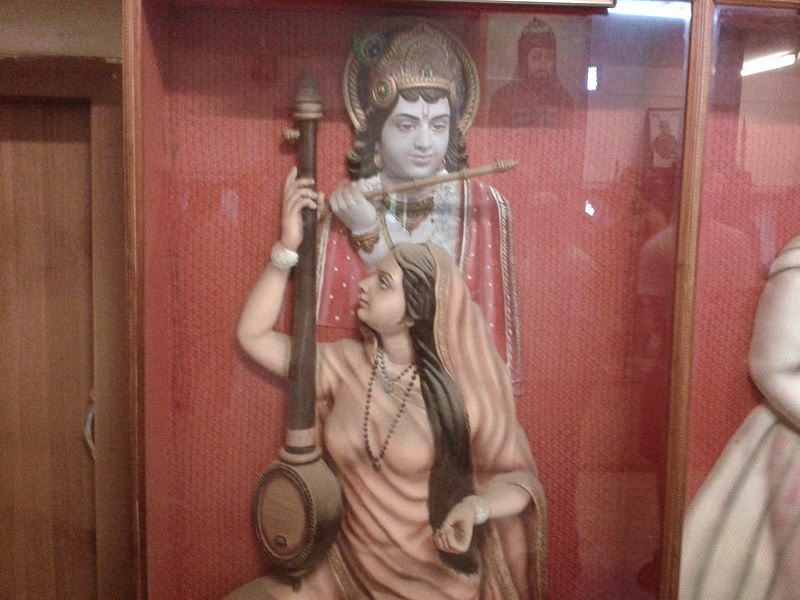Bhakti or Devotion is a very important theme in the Bhagavad Gita. In Chapter 7, verse 1, Shri Krishna tells—
There are many more verses in Bhagavd Gita explaining and discussing Bhakti/devotion. Our this articles' topic is— importance of Bhakti in Bhagavad Gita — according to Swami Vivekananda.
Swami Vivekananda told—
This page was last updated on: 29 November 2014, 5:18 am IST (UTC+5:30 hours)
Number of revisions in this page: 1
With the mind clinging to Me, O Partha, performing yoga, refuged in Me, how thou shalt without doubt know Me to the uttermost, that hear thou.In Chapter 9, verse 26, Shri Krishna tells—
He who offers to Me with devotion a leaf, a flower, a fruit, water, that I accept from the striving self, offered as it is with devotion.In Chapter 11, verse 54, Shri Krishna assures—
By devotion to Me alone I may thus be perceived, Arjuna, and known and seen in essence, and entered, O Parantapa.
There are many more verses in Bhagavd Gita explaining and discussing Bhakti/devotion. Our this articles' topic is— importance of Bhakti in Bhagavad Gita — according to Swami Vivekananda.
Importance of Bhakti in Bhagavad Gita
 |
| Image source: Wikimedia Commons |
- If you want to be a Bhakta, it is not at all necessary for you to know whether Krishna was born in Mathurâ or in Vraja, what he was doing, or just the exact date on which he pronounced the teachings of the Gitâ. You only require to feel the craving for the beautiful lessons of duty and love in the Gita. All the other particulars about it and its author are for the enjoyment of the learned. Let them have what they desire. Say "Shântih, Shântih" to their learned controversies, and let us "eat the mangoes".[Source]
- Let us see some of the main points discussed in the Gita. Wherein lies the originality of the Gita which distinguishes it from all preceding scriptures? It is this: Though before its advent, Yoga, Jnana, Bhakti, etc. had each its strong adherents, they all quarrelled among themselves, each claiming superiority for his own chosen path; no one ever tried to seek for reconciliation among these different paths. It was the author of the Gita who for the first time tried to harmonise these. He took the best from what all the sects then existing had to offer and threaded them in the Gita. But even where Krishna failed to show a complete reconciliation (Samanvaya) among these warring sects, it was fully accomplished by Ramakrishna Paramahamsa in this nineteenth century.[Source]
- Says Krishna in the Gita: The Lord is the only One who never changes. His love never fails. Wherever we are and whatever we do, He is ever and ever the same merciful, the same loving heart. He never changes, He is never angry, whatever we do. How can God be angry with us? Your babe does many mischievous things: are you angry with that babe? Does not God know what we are going to be? He knows we are all going to be perfect, sooner or later. He has patience, infinite patience. We must love Him, and everyone that lives — only in and through Him. This is the keynote.[Source]
- To obtain Bhakti, seek the company of holy men who have Bhakti, and read books like the Gita and the Imitation of Christ; always think of the attributes of God.[Source]
This page was last updated on: 29 November 2014, 5:18 am IST (UTC+5:30 hours)
Number of revisions in this page: 1

No comments:
Post a Comment
Comment policy